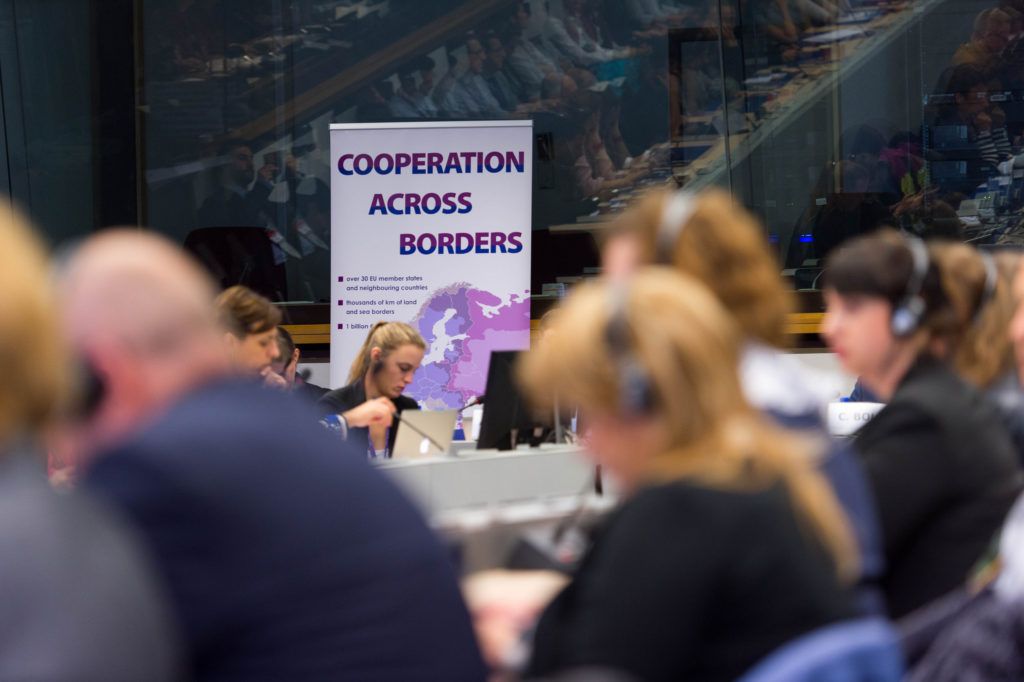Can regions and cities act as positive agents of change?
This was the central question put to the speakers and audience at the workshop entitled ”Providing opportunities at the EU’s external borders: regions and cities within the European Neighbourhood Instrument cross-border cooperation,” which took place in Brussels on 11 October. The workshop was organised by TESIM in cooperation with DG NEAR, European Commission as part of the European Week of Cities and Regions (EWRC).
The answer to the question above was a resounding ”yes”, despite some challenges faced within participation in ENI CBC. Mathieu Bousquet, Head of Unit within DG NEAR underlined that regions and cities are not only main beneficiaries of neighbourhood cross border cooperation (CBC) programmes, but they are also key players in the definition of local strategies for the benefit of both sides of the EU’s external border.
”There is a bottom up approach: the people on the external borders must come up with the solutions to challenges together.”
CBC as a unique opportunity
This was indeed backed up by the speakers from both Member States and Partner Countries at both national and regional level. Margarita Golovko from the Estonian Ministry of Finance emphasised that cross border cooperation lessens the peripheral status of Estonia within the EU. CBC works if border regions share resources, challenges and solutions. Currently, one of the biggest reforms in Estonia is within local governance which Margarita believes will give more power to and resources for CBC.
”The border with Russia gives an additional opportunity for municipalities to see how the dividing line can actually serve as an extra strength for improvement in these regions. If there is a will in local governance, then it is possible to work together despite challenges.”
Artjoms Mahlins from Daugvapils City Council, a municipality in Latvia bordering Lithuania and Belarus, believes that CBC offers much more than a financial reward. It gives municipalites across the borders the chance to get together and learn from each other, which broadens horizons and view points on issues such as tourism, heritage, sports etc. This has been his direct experience through the Latvia-Lithuania-Belarus ENPI CBC Programme. There are many EU funded projects which exist but ENI CBC offers a specific advantage over others.
”The human dimension is important: the CBC projects involve local specialists, students, craftspeople etc learning from each other and sharing good practices.”
Overcoming challenges
There are, however, important disparities among the participating Member States and Partner Countries in terms of capacities to be involved in CBC projects. This is linked to the level of decentralisation in countries and also to the existence of administrative systems that promote or prevent participation. Capacity building is a crucial element needed to improve regions and cities’ chances of being more involved in ENI CBC.
Even in difficult contexts where there is no real local autonomy and an influx of refugees, like in Lebanon, municipalities still managed to be extremely active in projects by working together in Unions of Municipalities. According to Lamia Chamas, from the Prime Minister’s Office of Lebanon, the main added value of CBC under the Mediterranean Sea Basin ENI CBC Programme lies in joint and consensual decision-taking, based on equal exchanges and partnerships which go in both directions, i.e. north-south and south-north of the Mediterranean. Through concrete projects linked to, for example, air quality (“Gouv’airnance“) or integrated coastal zone management (“MedSeaties“), Lebanese municipalities have compensated for the lack of funds from the central government to develop strategies which have triggered a cascade effect at the level of the central government.
“Municipalities did not wait for the development of national strategies to launch their own projects in the fields of air pollution or integrated coastal zone management for instance. Municipalities have been leading initiatives which protect citizens and benefit large territorial areas.”
Looking ahead
Regions and cities within ENI CBC have established themselves as clear agents of change both in Member States and Partner Countries. However, further and new partnerships are needed to spread further the work of ENI CBC. This also means attracting beneficiaries that are newcomers to this type of funding. For this, increased visibility and capacity building are clear needs to be addressed.
The workshop was attended by over 100 representatives from European institutions, national authorities from both Member States and Partner Countries as well as participants from IHECS, a communication school in Brussels. For these students, this is the beginning of a process to discover the work of ENI CBC programmes and develop ways to communicate these border stories in a different manner.
